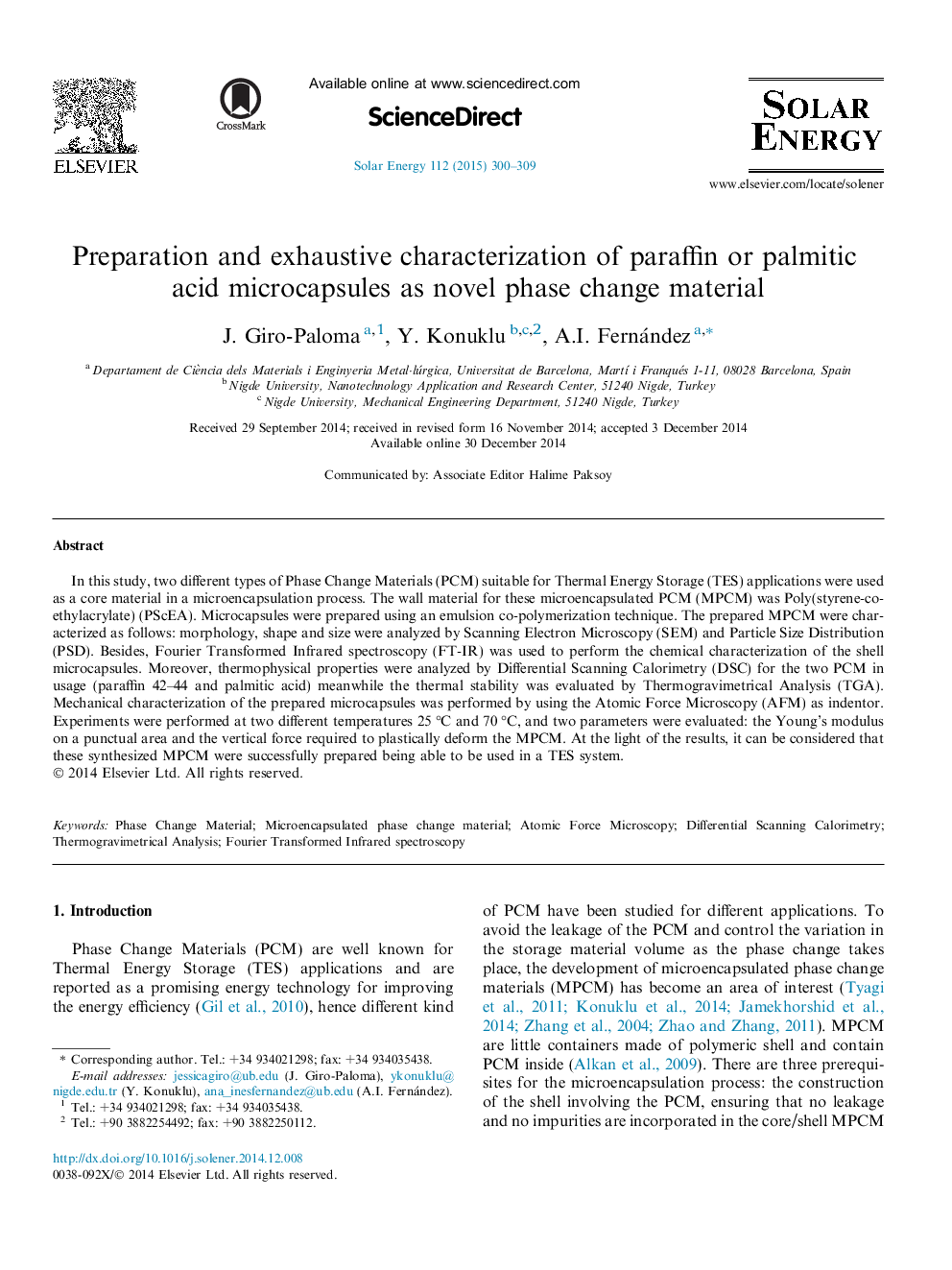| Article ID | Journal | Published Year | Pages | File Type |
|---|---|---|---|---|
| 1549771 | Solar Energy | 2015 | 10 Pages |
•Paraffin and palmitic acid with PScEA shell were successfully encapsulated.•Chemical, physical, and mechanical characterizations were carried out.•Mechanical response was evaluated by AFM at different temperatures.•Stiffness for palmitic acid sample as PCM depends on the temperature assay.•Both encapsulated paraffin and palmitic acid are suitable for TES.
In this study, two different types of Phase Change Materials (PCM) suitable for Thermal Energy Storage (TES) applications were used as a core material in a microencapsulation process. The wall material for these microencapsulated PCM (MPCM) was Poly(styrene-co-ethylacrylate) (PScEA). Microcapsules were prepared using an emulsion co-polymerization technique. The prepared MPCM were characterized as follows: morphology, shape and size were analyzed by Scanning Electron Microscopy (SEM) and Particle Size Distribution (PSD). Besides, Fourier Transformed Infrared spectroscopy (FT-IR) was used to perform the chemical characterization of the shell microcapsules. Moreover, thermophysical properties were analyzed by Differential Scanning Calorimetry (DSC) for the two PCM in usage (paraffin 42–44 and palmitic acid) meanwhile the thermal stability was evaluated by Thermogravimetrical Analysis (TGA). Mechanical characterization of the prepared microcapsules was performed by using the Atomic Force Microscopy (AFM) as indentor. Experiments were performed at two different temperatures 25 °C and 70 °C, and two parameters were evaluated: the Young’s modulus on a punctual area and the vertical force required to plastically deform the MPCM. At the light of the results, it can be considered that these synthesized MPCM were successfully prepared being able to be used in a TES system.
